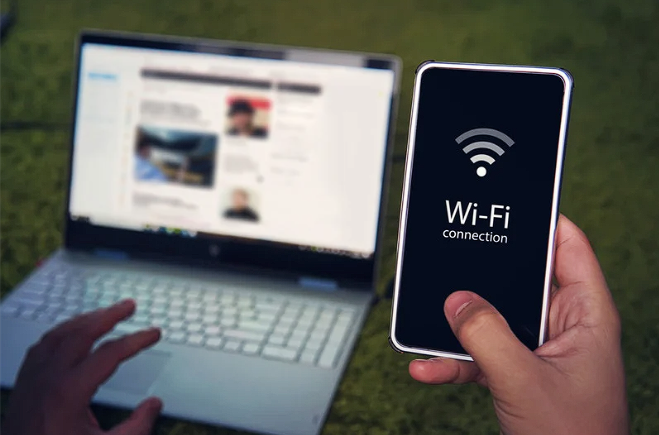Introduction: Why Browser Settings Matter on Public Wi-Fi
Connecting to public Wi-Fi feels like winning a small prize — free internet. But the truth? It’s a double-edged sword. Hackers love unsecured networks because they can snoop on careless users. Your browser is the gateway to most of your online activity, which makes it a prime target. That’s why tweaking your browser settings is one of the best ways to protect yourself. In this guide, we’ll break down the best browser settings for public Wi-Fi protection so you can browse with confidence.
1. Always Enable HTTPS by Default
The first step is simple: make sure every site you visit uses HTTPS. This encrypts the data flowing between you and the website.
How to Do It
- Use extensions like HTTPS Everywhere (or built-in browser settings in Chrome, Firefox, Edge, and Safari).
- Check the padlock icon in the address bar.
- Avoid websites marked “Not Secure.”
Think of HTTPS as the seatbelt for your browsing. Don’t ride without it.
2. Disable Auto-Fill and Save Passwords
Convenience can backfire. Auto-fill might save you seconds, but on public Wi-Fi, it’s like leaving your wallet on the table.
Safer Alternatives
- Turn off browser password saving.
- Use a trusted password manager instead.
- Enter sensitive info only on secure networks.
3. Turn Off Browser Sync on Public Networks
Syncing your browser across devices is handy, but risky on public Wi-Fi. It can expose your browsing history, bookmarks, and saved logins.
What to Do Instead
- Pause sync while connected to public Wi-Fi.
- Resume syncing only on private, trusted networks.
4. Block Pop-Ups and Trackers
Public Wi-Fi hotspots are often crawling with malicious ads. These can lead to phishing sites or install harmful code.
Settings to Adjust
- Enable pop-up blockers in your browser.
- Turn on “Do Not Track” requests.
- Use built-in tracking protection or install ad-blocker extensions.
Think of trackers as nosy neighbors. You don’t have to let them peek in.
5. Clear Cookies and Cache Frequently
Cookies and cached files can store login sessions and personal data. On a public network, that’s like leaving breadcrumbs for hackers.
Best Practice
- Clear cookies and cache after each public Wi-Fi session.
- Use private/incognito browsing for sensitive tasks.
- Adjust browser settings to delete data automatically when you close it.
6. Restrict Location and Camera Access
Many websites request access to your camera, microphone, or location. On public Wi-Fi, that’s a risk you don’t want to take.
Smart Settings
- Set permissions to “Ask every time.”
- Only grant access when absolutely necessary.
- Review and revoke permissions regularly.
7. Update Your Browser Regularly
Outdated browsers are hacker goldmines. Updates patch vulnerabilities that cybercriminals can exploit.
Stay Updated
- Enable automatic browser updates.
- Restart your browser often to apply patches.
- Keep extensions updated too.
8. Use Private Browsing Modes
When you browse in incognito or private mode, your browser won’t store history, cookies, or logins. That’s extra peace of mind on public Wi-Fi.
When to Use It
- Accessing email on shared networks.
- Logging into work accounts.
- Browsing without leaving digital traces.
9. Pair Browser Settings with a VPN
Even the best browser settings for public Wi-Fi protection have limits. A VPN adds full encryption, making your browsing invisible to snoops.
Why It Works
- Encrypts all traffic, not just the browser.
- Hides your real IP address.
- Protects you across apps and sites.
Conclusion: Lock Down Your Browser, Lock Out Hackers
Public Wi-Fi is convenient but risky. By adjusting your browser settings, you reduce the chances of falling victim to hackers. From forcing HTTPS to disabling auto-fill and syncing, each tweak adds a layer of security. Pair those steps with a VPN, and you’ve got the best browser settings for public Wi-Fi protection locked in. Next time you connect at a café, you’ll know you’re browsing smarter, not just faster.
FAQ
- Is incognito mode enough to protect me on public Wi-Fi?
No. It hides local history but doesn’t encrypt traffic. Pair it with a VPN for real protection. - Should I let my browser save passwords on public Wi-Fi?
Never. Use a password manager instead for safer storage. - Why is HTTPS so important on public Wi-Fi?
It encrypts data between you and the website, stopping hackers from stealing your information. - Can pop-ups really be dangerous on public networks?
Yes. Malicious pop-ups can redirect you to phishing sites or install malware. - Do I still need a VPN if I adjust my browser settings?
Yes. Browser settings protect your browsing, but a VPN protects all your online traffic.

